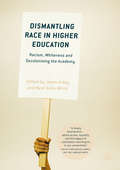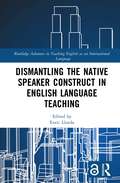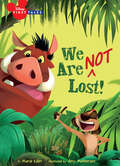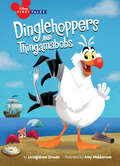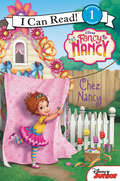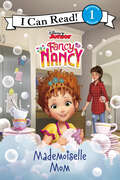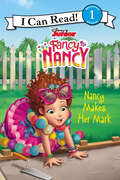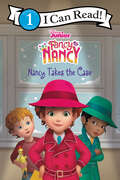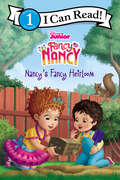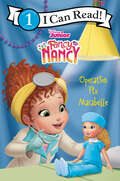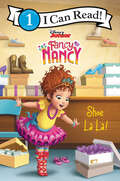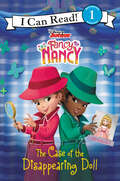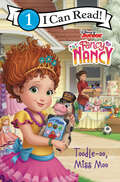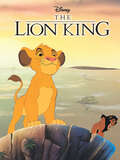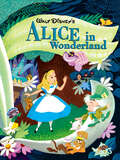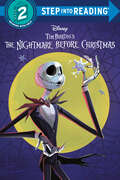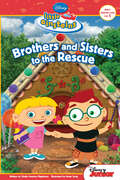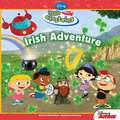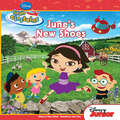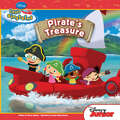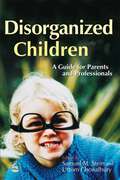- Table View
- List View
Dismantling Race in Higher Education: Racism, Whiteness and Decolonising the Academy
by Heidi Safia Mirza Jason ArdayThis book reveals the roots of structural racism that limit social mobility and equality within Britain for Black and ethnicised students and academics in its inherently white Higher Education institutions. It brings together both established and emerging scholars in the fields of Race and Education to explore what institutional racism in British Higher Education looks like in colour-blind 'post-race' times, when racism is deemed to be ‘off the political agenda’. Keeping pace with our rapidly changing global universities, this edited collection asks difficult and challenging questions, including why black academics leave the system; why the curriculum is still white; how elite universities reproduce race privilege; and how Black, Muslim and Gypsy traveller students are disadvantaged and excluded.The book also discusses why British racial equality legislation has failed to address racism, and explores what the Black student movement is doing about this. As the authors powerfully argue, it is only by dismantling the invisible architecture of post-colonial white privilege that the 21st century struggle for a truly decolonised academy can begin. This collection will be essential reading for students and academics working in the fields of Education, Sociology, and Race.
Dismantling the Native Speaker Construct in English Language Teaching (Routledge Advances in Teaching English as an International Language Series)
by Enric LlurdaThis edited volume provides a set of cutting-edge research on native-speakerism and how the concept of the native speaker is still present in the teaching of English as a global language.The chapters each take a critical stance on the concept of ‘native speaker’ and thus deconstruct it so that the reader can construct their own vision of language use, language acquisition, and language teaching in an unbiased way, detached from myths and fallacies that have permeated in language education up until today. Though this book is contextualized within the teaching of English as an International Language, its contributions and argumentations are also illuminating for any other language teaching context. Research included in this volume is empirical, thus providing rich data to support critical argumentation, and ensuring a global overview of studies conducted in Asia, Europe, and the Americas.A unique reference for students, scholars, and practitioners interested in the native speaker construct and its effect on language teachers’ identities, general language teaching practices, and advancing the field of Applied Linguistics.Chapter 1 of this book is freely available as a downloadable Open Access PDF at http://www.taylorfrancis.com under a Creative Commons [Attribution-Non Commercial-No Derivatives (CC-BY-NC-ND)] 4.0 license.
Disney Activity Songs
by Walt Disney RecordsDisney activity songs features "Itsy Bitsy Spider" "Ring Around the Rosy" "One, Two, Buckle My Shoe " "I’m a Little Teapot" and "Pat-a-Cake "
Disney Descendants: School of Secrets CJ's Treasure Chase
by Jessica Brody Disney Storybook Art Team No New Art NeededCJ is the daughter of Captain James Hook. She's fierce. She's swashbuckling. And she has big dreams. . . like finding the treasure she's known about since she was a little girl stranded on the Isle of the Lost. When CJ sneaks out of Auradon Prep with her best friend, Freddie, they go on a wild chase to find it.
Disney First Tales: The Lion King: We Are (Not) Lost
by Marie EdenHI, we're Timon and Pumba. We're looking for the water hole. Can you help us find it? Come on, let's go!
Disney First Tales: The Little Mermaid: Dinglehoppers and Thingamabobs
by Disney Book GroupLearn what Scuttle thinks the treasures in his collection are used for in this humorous storybook.
Disney Junior Fancy Nancy: Chez Nancy (I Can Read Level 1)
by Nancy ParentComing in 2018 to Disney Junior, Fancy Nancy will star in her own fabulous TV show! Nancy has a new playhouse, and it’s time for some ooh-la-la fancy fun! But when one friend wants to be the boss of who can come to play, Nancy has to decide what it means to be a good friend.Based on the new Disney Junior TV show and inspired by the classic picture book series by Jane O’Connor and Robin Preiss Glasser, this brand-new Level One I Can Read retells key moments from the show.Fancy Nancy: Chez Nancy is a Level One I Can Read, which means it’s perfect for children learning to sound out words and sentences.
Disney Junior Fancy Nancy: Mademoiselle Mom (I Can Read Level 1)
by Nancy ParentWhen Mom gets sniffles that are worse than awful, Nancy decides she can help Mom by tidying up and watching JoJo. After all, Nancy is practically an expert at being a big sister, so how hard could it be?Disney Junior’s Fancy Nancy: Mademoiselle Mom is a Level One I Can Read, perfect for children learning to sound out words and sentences.Disney Junior’s Fancy Nancy is an animated family comedy starring six-year-old Nancy, a girl who is fancy in everything from her advanced vocabulary to her creative, elaborate attire. The show is based on the New York Times bestselling book series Fancy Nancy by Jane O’Connor and Robin Preiss Glasser.
Disney Junior Fancy Nancy: Nancy Makes Her Mark (I Can Read Level 1)
by Nancy ParentWhen Dad makes a plan to fix the walkway in front of their house with new cement, Nancy knows just how to make the walkway parfait—which is French for perfect!Disney Junior’s Fancy Nancy: Nancy Makes Her Mark is a Level One I Can Read, perfect for children learning to sound out words and sentences.Disney Junior’s Fancy Nancy is an animated family comedy starring six-year-old Nancy, a girl who is fancy in everything from her advanced vocabulary to her creative, elaborate attire. The show is based on the New York Times bestselling book series Fancy Nancy by Jane O’Connor and Robin Preiss Glasser.
Disney Junior Fancy Nancy: Nancy Takes the Case (I Can Read Level 1)
by Victoria SaxonOn a snowy day, Nancy and her friends are stuck playing inside—but the plot thickens when Lionel’s comic goes missing! Don’t worry, Detective Nancy is on the case.Disney Junior Fancy Nancy: Nancy Takes the Case is a Level One I Can Read, perfect for children learning to sound out words and sentences.Disney Junior’s Fancy Nancy is an animated preschool series starring six-year-old Nancy, a girl who is fancy in everything from her advanced vocabulary to her creative, elaborate attire. The show is based on the New York Times bestselling book series Fancy Nancy by Jane O’Connor and illustrated by Robin Preiss Glasser.
Disney Junior Fancy Nancy: Nancy's Fancy Heirloom (I Can Read Level 1)
by Marisa Evans-SandenNancy, JoJo, and Mom plant a vegetable garden for Grandpa using Grandma Margie’s heirloom tomato seeds. While tilling the soil, they discover Mom’s old time capsule buried in the garden!Disney Junior’s Fancy Nancy: Nancy's Fancy Heirloom is a Level One I Can Read, perfect for children learning to sound out words and sentences.Disney Junior’s Fancy Nancy is an animated series starring six-year-old Nancy, a girl who is fancy in everything from her advanced vocabulary to her creative, elaborate attire. The show is based on the New York Times bestselling book series Fancy Nancy by Jane O’Connor and Robin Preiss Glasser.
Disney Junior Fancy Nancy: Operation Fix Marabelle (I Can Read Level 1)
by Nancy ParentNancy discovers a new talent for repairing broken toys in the neighborhood. But can she keep her cool when her prized doll, Marabelle, needs help?Disney Junior Fancy Nancy: Operation Fix Marabelle is a Level One I Can Read, perfect for children learning to sound out words and sentences.Disney Junior’s Fancy Nancy is an animated preschool series starring six-year-old Nancy, a girl who is fancy in everything from her advanced vocabulary to her creative, elaborate attire. The show is based on the New York Times bestselling book series Fancy Nancy by Jane O’Connor and illustrated by Robin Preiss Glasser.
Disney Junior Fancy Nancy: Shoe La La! (I Can Read Level 1)
by Victoria SaxonWhen Nancy spots a pair of magnifique red shoes in a store window, she just has to find a way to buy them!Disney Junior’s Fancy Nancy: Shoe La La is a Level One I Can Read, perfect for children learning to sound out words and sentences.Based on the New York Times bestselling book series Fancy Nancy, which includes over 100 titles with more than 30 million books sold, Disney Junior’s Fancy Nancy is an animated family comedy centered on six-year-old Nancy, a girl who likes to be fancy in everything from her advanced vocabulary to her creative, elaborate attire.
Disney Junior Fancy Nancy: The Case Of The Disappearing Doll (I Can Read Level 1)
by Nancy ParentIt’s time for a tea party, but Nancy’s doll, Marabelle, is nowhere to be found! Nancy and Bree will have to be sleuths (which is a fancy way of saying people who solve mysteries!) to crack the case of the disappearing doll. Disney Junior’s Fancy Nancy: The Case of the Disappearing Doll is a Level One I Can Read, perfect for children learning to sound out words and sentences.Disney Junior’s Fancy Nancy is an animated family comedy starring six-year-old Nancy, a girl who is fancy in everything from her advanced vocabulary to her creative, elaborate attire. The show is based on the New York Times bestselling book series Fancy Nancy by Jane O’Connor and Robin Preiss Glasser.
Disney Junior Fancy Nancy: Toodle-oo, Miss Moo (I Can Read Level 1)
by Victoria SaxonWhen the Clancys decide to have a yard sale, will Nancy be able to say good-bye to her oldest, most precious toy, Miss Moo? Disney Junior’s Fancy Nancy: Toodle-oo, Miss Moo is a Level One I Can Read, perfect for children learning to sound out words and sentences.Based on the New York Times bestselling book series Fancy Nancy, which includes over 100 titles with more than 30 million books sold, Disney Junior’s Fancy Nancy is an animated family comedy centered on six-year-old Nancy, a girl who likes to be fancy in everything from her advanced vocabulary to her creative, elaborate attire.
Disney Storybook Collection-3rd Edition
by DISNEY BOOK GROUPWhen Simba the lion cub is born, he learns he has a big role to play in the Circle of Life. One morning, his father Mufasa shows him the great kingdom he will one day rule, but not everyone wants Simba to be king. Simba's Uncle Scar, next in line for the throne, wants the throne for himself. So when Scar convinces Simba that an awful tragedy is his fault, Simba flees the kingdom, leaving the greedy and and selfish Scar behind as ruler. Don't miss this coming-of-age tale as Simba grows into an adult and fulfills his destiny!
Disney Storybook Collection-3rd Edition
by DISNEY BOOK GROUPRelive the timeless classic, Alice in Wonderland, with this beautifully illustrated retelling of one of Walt Disney's most loved films. When Alice follows the White Rabbit down a rabbit hole one sleepy afternoon, she finds herself in the strange and bizarre world of Wonderland! But when Alice loses sight of the White Rabbit, she meets all sorts of characters—and not everyone is friendly. Will Alice be able to return to her world, or will be she stuck in Wonderland forever?
Disney Tim Burton's The Nightmare Before Christmas (Step into Reading)
by RH DisneyThis Step 2 Step into Reading leveled reader retells the iconic Disney film Tim Burton&’s The Nightmare Before Christmas! Perfect for young fans learning to read independently.Jack Skellington is the Pumpkin King of Halloween Town... but after so many years of the same spooky thing, he's become bored of scaring. When Jack accidentally discovers Christmas Town, he hatches a scheme to take over a new holiday for the year. But can the master of monstrous scares spread Christmas cheer like Santa Claus? Find out in this Step 2 Step into Reading leveled reader, perfect for kids ages 4 to 6 who love the film and are learning to read!Step 2 readers use basic vocabulary and short sentences to tell simple stories. They are for children who recognize familiar words and can sound out new words with help.
Disney's Little Einsteins: Brothers & Sisters to the Rescue
by Disney PressIn this daring new mission, a mean old witch has trapped Hansel and Gretel in a gingerbread house. It's up to the brave brother and sister duo, Annie and Leo, to follow the clues and rescue Hansel and Gretel from the witch's grasp. Preschoolers will enjoy learning to read in this exciting early reader.
Disney's Little Einsteins: Irish Adventure
by Disney PressIrish Harp needs the teams' help: A leprechaun has stolen two of his strings! Will the Little Einsteins be able to repair Irish Harp in time for the big step-dancing festival at Kilkenny Castle? Find out in this shamrockin' adventure!
Disney's Little Einsteins: June's New Shoes
by Disney PressJune is the team's talented dancer, always ready to lead the Little Einsteins on their physical challenges. One day, June receives a shiny new pair of ballet shoes. But instead of gracefully leaping over walls, poor June keeps taking lots of falls!
Disney's Little Einsteins: Pirate's Treasure
by Disney PressThe Little Einsteins have stumbled upon a musical pirate map that will lead them to a buried treasure chest! Join the team on a swashbuckling adventure, but beware: Big Jet isn't far behind. Will Rocket find the treasure before Big Jet does?
Disney, Culture, and Curriculum (Studies in Curriculum Theory Series)
by Jennifer A. Sandlin Julie C. GarlenA presence for decades in individuals’ everyday life practices and identity formation, the Walt Disney Company has more recently also become an influential element within the "big" curriculum of public and private spaces outside of yet in proximity to formal educational institutions. Disney, Culture, and Curriculum explores the myriad ways that Disney’s curricula and pedagogies manifest in public consciousness, cultural discourses, and the education system. Examining Disney’s historical development and contemporary manifestations, this book critiques and deconstructs its products and perspectives while providing insight into Disney’s operations within popular culture and everyday life in the United States and beyond. The contributors engage with Disney’s curricula and pedagogies in a variety of ways, through critical analysis of Disney films, theme parks, and planned communities, how Disney has been taught and resisted both in and beyond schools, ways in which fans and consumers develop and negotiate their identities with their engagement with Disney, and how race, class, gender, sexuality, and consumerism are constructed through Disney content. Incisive, comprehensive, and highly interdisciplinary, Disney, Culture, and Curriculum extends the discussion of popular culture as curriculum and pedagogy into new avenues by focusing on the affective and ontological aspects of identity development as well as the commodification of social and cultural identities, experiences, and subjectivities.
Disorganized Children: A Guide for Parents and Professionals
by Uttom Chowdhury Samuel Stein Rebecca ChilversDisorganized children' may display a range of behaviours symptomatic of, for example, ADHD, autism and conduct disorders, but they often fail to meet all the criteria for a clear diagnosis. In this book, psychiatrists, speech, family and occupational therapists and neurodevelopment specialists present a range of behavioural and psychological strategies to help disorganized children improve concentration and performance in the classroom and deal with a variety of behaviour and social interaction difficulties. The authors also provide information and interventions for dyslexia, dyspraxia, OCD and schizophrenia, among others. The combination of information, exercises and case studies makes this a valuable tool for use by parents, health care and teaching professionals, and the authors provide an insight into the mind of disorganized children and practical guidance on how best to help them achieve their full potential.
Disparate Ladders: Why School and University Policies Differ in Germany, Japan and Switzerland
by Arnol J. EidenheimerThis study breaks new ground in examining how political factors helped lead three countries with highly regarded education systems to evolve quite different structures and processes in their secondary and higher education sectors. Their educational "ladders" are disparate because the techniques and timing for selecting students for further educational opportunities vary both among the three nations, and within the German and Swiss federal systems. The comparative analysis seeks to place the Japanese trajectory with reference to European developments, and to account for some of its unique aspects. Building on an extensive record of publication on comparative education policies and welfare state development, Heidenheimer places special emphasis on exploring the network of relationships between the various levels of the educational system and tiers of government.Following a strategy of integrated comparative analysis, the various national school and university types are directly compared as to their permeability, nature of administrative supervision, curricula, and examination practices. Contrasting the ways in which political parties and bureaucracies have made and adapted policies helps clarify how and why specific innovations became political issues, at the national and regional levels. Through close contextual case analysis, the study probes why, despite great differences hi political institutions, some secondary school policies became especially embattled in all three countries.Heidenheimer explains why the German Lander have maintained a monopoly in the university sector, whereas in both "centralized" Japan and "decentralized" Switzerland national governments operate and finance key parts of the university sector. Also analyzed is the impact of post-unification developments on East German university expansion. Whereas many Swiss schools have no principal, German courts have ruled that principals have tenure in their jobs. This comparative treatment by a political scientist complements studies of education by sociologists and economists analyzing how differences in political institutions have helped shape some distinctive policy emphases. Based on original research and a broad command of the literature, Disparate Ladders will appeal to school administrators, educators, political scientists, social historians, sociologists, and multiculturalists.
